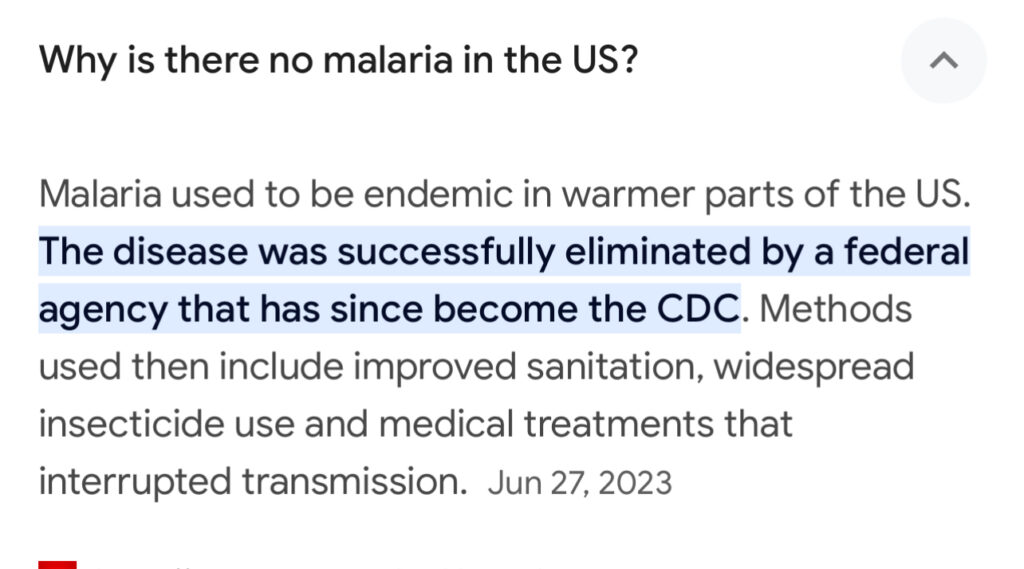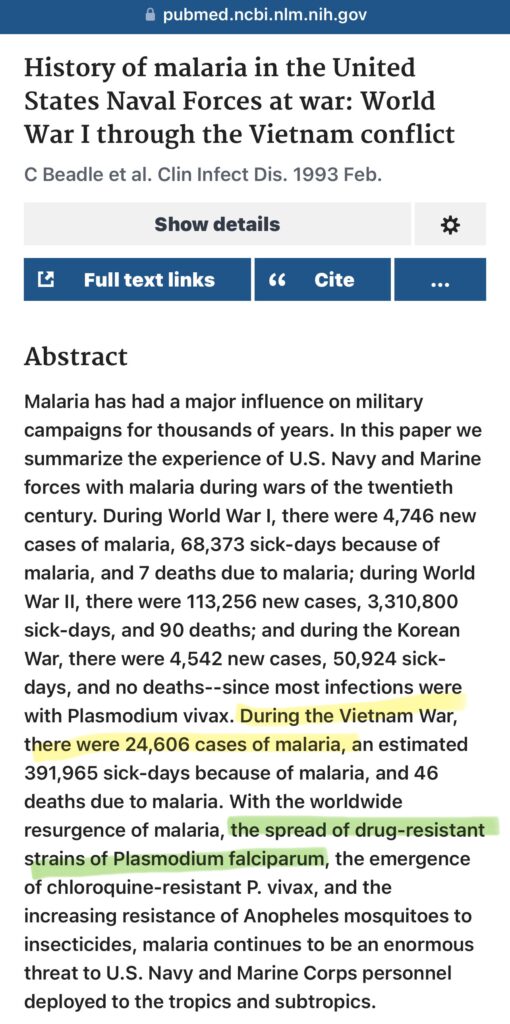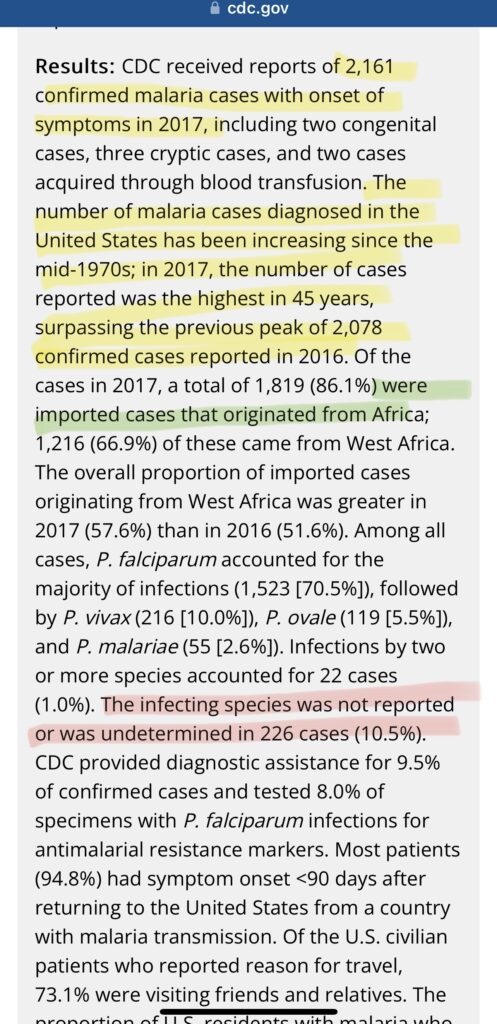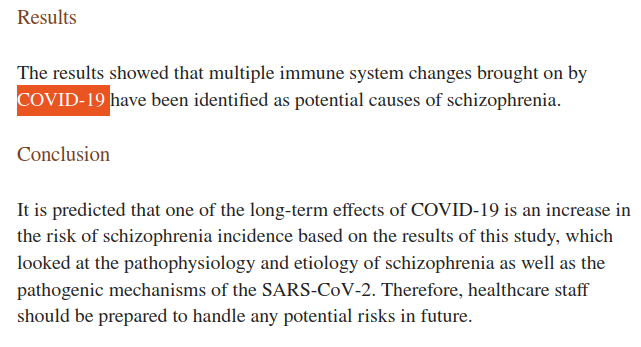This is “fact checking” at its best and worst.
FALSE: Prozac is only 18.5% flouride!”


Lol, it was successfully eliminated by federal agencies so hard it killed 32,000,000 – 50,000,000 people that we know of and who knows how many others the CDC falsified the cause of death for.



Malaria was all but eradicated by 1930, but endless banker wars and the shared needles from “MEPS” gave the entire nation 100 years of drug resistant p falciparum.
Almost all the malaria in america came from World War 2 and Vietnam and other such pointless conflicts and profiteering activities where we lied about why it was justified/necessary, but “oh your sickness is your fault because you’re GAY.” “because you’re BLACK.” “you got high.”
Well, the CDC says it’s because of the military. Their stats back it up.
The fact that every single pandemic -except for this one- started on base. Backs it up.
This PR horseshit where they pander to LGBT harder than NBC, Bud Light, and Target doesn’t cut it anymore. you demonized us for 40 years and blamed us for a pandemic your conflicts and your shared needles brought back to America while Fauci lied about everything.
Isn’t it just neat that the November 2019 “discovery” that it could have been treated by a cheap off-patent drug we’ve had since 1978, tanked the entire economy and sent all the leftists into “papers, please” mode? The only “crisis” we have here is that this new strain you’ve imported isn’t one that works with the “keep the subscriber, uh, I mean patient, on protease inhibitors for life” business model.
Psychiatric effects of malaria
Although early descriptions of the psychiatric effects of malaria first appeared in the ancient medical literature of Hippocrates and Galen [4, 5], it was only many centuries later that descriptions of these effects became relatively common. Such descriptions grew particularly detailed in the aftermath of World War I (WWI), where malaria, epidemic on the Macedonian front between 1916 and 1918, was unexpectedly found to be the leading cause of psychiatric disorders among soldiers of the Allied powers fighting there [6].
Detailed reports in the literature from this era described a seemingly bewildering set of psychiatric effects attributed to both severe and mild forms of the disease. Early reports had described dreamlike states [7], anterograde amnesia, difficulties with concentration, disorientation, and forgetfulness [8], confusional psychosis, dementia, “melancholia”, and mania [9] emerging in patients recovering from severe malaria. During this era, mild chronic or intermittent malaria infection had also become associated with symptoms of “neurasthenia”, including depression, irritability, anxiety, and insomnia [10]. In subsequent years, even more severe symptoms such as confusion [11], intermittent psychoses, and delirium were also commonly attributed to those with mild forms of malaria [12].
This literature even warned of the potential for missed diagnoses of malaria prior to the onset of malarial fever among psychiatric patients admitted for care and thought to be suffering from delirium and psychoses [13]. Many such patients were diagnosed with malaria only some time later at the onset of fever, or when their symptoms progressed to coma. These reports described a common prodrome of hallucinations, anxiety, crying, violence, agitation, and a dreamy and confusional state [13].
So common and diverse became the psychiatric effects attributed to both severe and mild forms of malaria during the post-WWI era, that an entire textbook, well received by psychiatrists at the time [14], was published with chapters featuring case reports of malarial psychoses, “dementia praecox”, confusional and delusional insanity, mania, “melancholia”, delirium, and dementia attributable to the disease. As noted by the author in his preface, “very few known syndromes are absent from the list apparently arising from malarial infection” [15].
By World War II (WWII), growing US and allied military experience, particularly in the South Pacific, had identified similar psychiatric effects associated with malaria. Reports from US military clinicians noted a characteristically confusional form of psychosis, as well as persecutory, grandiose, bizarre delusions, and symptoms of anxiety, depression, and mania associated with both severe and mild forms of the disease [16, 17]. Yet others had begun to challenge the true association of many of these symptoms with malaria, noting “too great a tendency to blame malaria for many of these symptoms” [16], with the temporal association of certain of these symptoms suggesting to other authors a toxic process [16].
Despite such growing suspicions, the psychiatric effects of malaria were still considered “more common than are generally known” [4], and a military journal editorial noted that malaria should be considered “associated with protean mental states” [18]. Psychiatric symptoms also remained clearly associated in the literature of the era with even the mild chronic and relapsing forms of disease, with a case report describing psychosis developing weeks prior to the onset of fevers from the generally benign Plasmodium vivax malaria [17].
Reports from among soldiers of the Vietnam War era similarly described mostly transient cases of psychosis, and impaired memory and concentration generally following admission for treatment for malaria [19], often lagging admission by some days, and typically without evidence of such symptoms while previously febrile [20]. Neuropsychological testing of certain of these patients both soon after their acute illness and following their recovery identified common patterns of deficits, particularly in tests of recent memory, visual organization, psychomotor speed, and visual motor integration [21, 22]. Decades later, follow-up of malaria patients from the Vietnam War demonstrated lasting changes in personality, depression, and symptoms of partial seizure [23], as well as deficits on tests of memory, and other evidence of chronic cognitive dysfunction on neuropsychological testing [24].
In more recent studies of broadly defined malaria infections, acute malaria among children [25], and multiple recurrent malaria infections have been associated with adverse effects on short-term cognitive performance [26]. Similarly, in recent reviews, among chronic psychiatric effects, the most common and strongest evidence exists for a risk of chronic cognitive impairment following successful malaria treatment [27–30]. Additional retrospective studies have attributed a risk of subclinical depressive and anxiety symptoms [31], as well as altered executive functioning [32], particularly following severe malaria infection.
https://malariajournal.biomedcentral.com/articles/10.1186/s12936-016-1391-6
its all a fucking lie.
… always has been.
the whole point of the NSA and FISA , obviously isn’t to “protect” us. they’re there to monitor, gag, and intimidate anyone who knows anything about this and punish them severely for leaking to anybody.
i don’t know what prompts some of these people to “take a knee” and maybe that is all some of them are “allowed” to say.
i don’t stylize myself as a great guy , nor the only person in the world who thinks this is hideous and evil and wants everyone to make it. hopefully there are better people than me who are better situated and can make a difference. we’re only going to get there by airing this fuckery publicly and out loud, arrived at solely through public information NOT from Alex Jones, NOT from 4chan, not from RUSSIA , every fucking last source I have is disclosed or published (well in the current batch anyway i went it alone at first and may republish some of that if i can substantiate it through other sources) by CDC, NIH, and DARPA et al themselves.
If I am a publisher of malinformation and misinformation then so are THEY.
Anyway, here’s Wonderwall:
